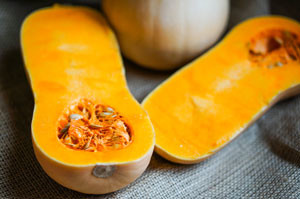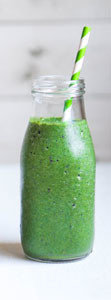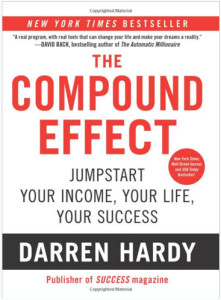 February is heart health month – 28 days dedicated to learning more about how to love and care for the hardest working muscle in your body.
February is heart health month – 28 days dedicated to learning more about how to love and care for the hardest working muscle in your body.
Here is great information on heart health courtesy of the scientists at USANA Health Sciences. I’ve included a few additional suggestions in purple font.
Did you know that your heart can pump up to 2,500 gallons of blood each day, or that your heart has the ability to beat more than three billion times throughout your life? Yeah, you might say the heart does its fair share of work.And because the heart does so much for your body, return the favor by brushing up on the best, scientifically proven ways to keep your heart protected.Value in Vitamin C
In a recent report titled Critical Reviews in Food Science and Nutrition, researchers from the Linus Pauling Institute at Oregon State University say that the current recommended daily allowance (RDA) of 75 milligrams of vitamin C for women and 90 milligrams for men isn’t sufficient. “We believe solid research shows the RDA should be increased,” says Dr. Balz Frei, director of LPI. “A 200 milligram intake of vitamin C on a daily basis poses absolutely no risk, but there is strong evidence it would provide multiple, substantial health benefits.” The report notes that, “Higher levels of vitamin C could help reduce the chronic diseases that today kill most people in the developed world — heart disease, stroke, cancer, and the underlying issues that lead to them, such as high blood pressure, chronic inflammation, poor immune response, and atherosclerosis.”
Fiber is Your Friend
Most of us know that fiber is associated with numerous health benefits, but certain research suggests how, over time, fiber can be used as a preventative measure for certain cardiovascular diseases.In an article published online at PLOSone.org, a group of researchers examined, among other things, the association between the intake of dietary fiber and the prevalence of ischemic cardiovascular disease (iCVD) in both men and women. Information was collected from thousands of participants in a wide range of ages, and scientists followed up with them after a mean of 13.5 years. Results of the study concluded that, “High fiber intakes were associated with lower incidence rates of iCVD in women and of ischemic stroke in men.”
Soluble fibre helps moderate blood glucose levels and lower cholesterol. To get the extra insoluble fibre you need, add these foods to your diet: green beans, dark leafy vegetables, whole grains, tomatoes, seeds, fruit skins, and skins of root vegetables.
Insoluble fibre benefits intestinal health, including reducing the risk and occurrence of colorectal cancer, hemorrhoids, and constipation. To get the extra soluble fibre, add these to your diet: oatmeal/oat bran, nuts, seeds, beans, lentils, apples, pears, strawberries, blueberries, legumes, barley, flaxseed, oranges, carrots.
My favourite convenient and effective way to get both: add Fibergy to your favourite smoothies, soups and stews. Having a serving of Fibergy 20 – 30 minutes before your meal can also help fill you so you don’t over eat!
The Power of Flavonoids
Flavonoids, or bioflavonoids, are plant-based compounds with powerful antioxidant properties, which means they reduce inflammation, promote healthy arteries, and help fight aging by preventing — and repairing — cellular damage. Flavonoids may also protect against cardiovascular disease. In a study published in the American Journal of Clinical Nutrition, researchers examined the relationship between flavonoid intake and cardiovascular disease (CVD). After following 38,180 men and 60,289 women over a seven-year period, the researchers concluded that, “Flavonoid consumption was associated with lower risk of death from CVD. … suggesting that even relatively small amounts of flavonoid-rich foods may be beneficial.” Foods that are rich in flavonoids include apples, blueberries, broccoli, cabbage, onions, strawberries, red grapes, red wine and tea.
Many human clinical trials confirm Coenzyme Q10’s effectiveness for maintenance of heart health.
Coenzyme Q10 (CoQ10) is found in the heart, where constant chemical energy availability is imperative. In addition to its benefits for cardiac function, CoQ10 also functions as a powerful fat soluble antioxidant, providing protection against free radical attack for cells in our arteries and blood vessels and other tissues. Cells with the highest energy demands such as the heart and other muscles contain the highest levels of CoQ10.90 to 120 mg of supplemental CoQ10 is recommended for adults with a family history of heart problems. This dosage is also appropriate for healthy men and women to help maintain a healthy cardiovascular system.
Hope these ideas make it easy to love your heart every month!
Shine On!
Gerry
 What’s the first thing that comes to mind when you think about Thanksgiving?
What’s the first thing that comes to mind when you think about Thanksgiving? Winter squashes are a good source of vitamin A, beta-carotene, vitamin C, potassium, and manganese and fibre. Butternut squash has a glycemic index of 75 (high) but a glycemic load of 10 (medium). A portion is 1/2 cup.
Winter squashes are a good source of vitamin A, beta-carotene, vitamin C, potassium, and manganese and fibre. Butternut squash has a glycemic index of 75 (high) but a glycemic load of 10 (medium). A portion is 1/2 cup. emember my ‘soul food’ resolutions from the last post? This has been such a fantastic experience.
emember my ‘soul food’ resolutions from the last post? This has been such a fantastic experience. Do any of you use greens or whole food powders to make sure you are getting your quota of greens everyday?
Do any of you use greens or whole food powders to make sure you are getting your quota of greens everyday? I’m reading a super book called
I’m reading a super book called  1. With the abundance of fresh fruits and veggies available it’s incredibly easy to get our 7 – 10 daily servings. Farmer’s markets and produce aisles showcase every colour of the rainbow of delicious veggies and juicy fruits and berries! Buy local and organic whenever it’s available. Try the healthy delicious summer recipes from the Sanoviv kitchen at the end of this article.
1. With the abundance of fresh fruits and veggies available it’s incredibly easy to get our 7 – 10 daily servings. Farmer’s markets and produce aisles showcase every colour of the rainbow of delicious veggies and juicy fruits and berries! Buy local and organic whenever it’s available. Try the healthy delicious summer recipes from the Sanoviv kitchen at the end of this article. 3. Sunshine! Our Cells are Solar Powered! Vitamin D is actually a hormone, rather than a true vitamin. It is the only nutrient to be manufactured by the body in direct reaction to sunlight. Vitamin D is made in our bodies when specific wavelengths of sunlight hit the skin, converting already present vitamin D precursors into a form of the vitamin our cells can use. Fifteen to thirty minutes exposure when the sun is high in the sky is the equivalent of taking 15,000-20,000 IU of vitamin D in supplement form. Vitamin D is critically important for calcium metabolism, bone health, glucose metabolism and weight management, cardiovascular health and immune function. Research has indicated that populations that live further from the equatorial zone, have a higher incidence of immune disorders and related diseases. It’s currently estimated that more than 1 billion people worldwide suffer from vitamin D deficiency. So let’s take advantage of those healthy rays. Just 10 – 15 minutes of direct sun a day is enough. If you are going to be in direct sun longer than that, make sure you wear sunscreen – sun burn in linked to cancer.
3. Sunshine! Our Cells are Solar Powered! Vitamin D is actually a hormone, rather than a true vitamin. It is the only nutrient to be manufactured by the body in direct reaction to sunlight. Vitamin D is made in our bodies when specific wavelengths of sunlight hit the skin, converting already present vitamin D precursors into a form of the vitamin our cells can use. Fifteen to thirty minutes exposure when the sun is high in the sky is the equivalent of taking 15,000-20,000 IU of vitamin D in supplement form. Vitamin D is critically important for calcium metabolism, bone health, glucose metabolism and weight management, cardiovascular health and immune function. Research has indicated that populations that live further from the equatorial zone, have a higher incidence of immune disorders and related diseases. It’s currently estimated that more than 1 billion people worldwide suffer from vitamin D deficiency. So let’s take advantage of those healthy rays. Just 10 – 15 minutes of direct sun a day is enough. If you are going to be in direct sun longer than that, make sure you wear sunscreen – sun burn in linked to cancer. One whole organic hormone free chicken breast cut in half
One whole organic hormone free chicken breast cut in half Don’t put anything on your skin that you wouldn’t put in your mouth.
Don’t put anything on your skin that you wouldn’t put in your mouth. Hydration is critical for cell function and detoxification. Drinking 2 litres of purified or filtered water everyday can improve your complexion, boost your immune system, improve digestion, support weight loss, and improve your concentration and energy. If you frequently feel tired in the mid afternoon, it may be dehydration. Think about how much water you have consumed that day before you grab a cuppa joe to pick you up. Drink a glass of water upon rising to rehydrate your body after sleep. Room temperature water with the juice of 1/2 a fresh lemon with a few shakes of cayenne pepper first thing in the morning is great for digestion and circulation. Drink plenty of water throughout the day, especially in hot weather or when exercising. Drink between meals, not with meals. Drinking with meals dilutes your digestive enzymes and stomach acid, interfering with proper digestion.
Hydration is critical for cell function and detoxification. Drinking 2 litres of purified or filtered water everyday can improve your complexion, boost your immune system, improve digestion, support weight loss, and improve your concentration and energy. If you frequently feel tired in the mid afternoon, it may be dehydration. Think about how much water you have consumed that day before you grab a cuppa joe to pick you up. Drink a glass of water upon rising to rehydrate your body after sleep. Room temperature water with the juice of 1/2 a fresh lemon with a few shakes of cayenne pepper first thing in the morning is great for digestion and circulation. Drink plenty of water throughout the day, especially in hot weather or when exercising. Drink between meals, not with meals. Drinking with meals dilutes your digestive enzymes and stomach acid, interfering with proper digestion. Sanoviv, derived from the Spanish words “healthy living”, provides your mind, body and spirit with a toxic-free environment to restore your health. Sanoviv is the first medical facility to be certified in Functional Medicine by the Institute of Functional Medicine, and has created a unique standard of quality, excellence and cleanliness never before seen in medical care.
Sanoviv, derived from the Spanish words “healthy living”, provides your mind, body and spirit with a toxic-free environment to restore your health. Sanoviv is the first medical facility to be certified in Functional Medicine by the Institute of Functional Medicine, and has created a unique standard of quality, excellence and cleanliness never before seen in medical care.